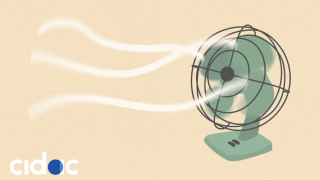“Solving poverty without addressing the problem of inequality of opportunity,” says Gonzalo Hernández Licona de Coneval, “could imply that the relevant participants [in the society] would be same ones as always”. In effect: it is impossible to deny the fact of inequality. But there are two pertinent questions: first, what should we do while the problem of inequality is solved, the latter presumably more complex than that of poverty? And, second, how is the inequality to be confronted? The answers are anything but obvious and require more than insults and worn-out clichés to address and mitigate these problems at their core.
Some weeks ago I wrote proposing that the problem is the poverty because it is lacerating, impedes social mobility and, above all, could be attacked with relative celerity. That text generated widespread polemics. I would like to explain my perspective on the dynamic between poverty and inequality.
Before anything else, inequality is an inherent part of human society, but there are two clearly differentiated sources of inequality: on the one hand, the inequality that is the product of human creativity and that is the source of the growth of the economy. The technological development of the last decades illustrates this to perfection: a few technological ventures have revolutionized the world, in addition to producing a wealthy cast never before imaginable. The same occurs with great artists, sports figures and actors who, maximizing their skills, have differentiated themselves from the income of the common mortal. Clearly, these people have succeeded because they were born with their main needs satisfied. This source of inequality should be applauded because it is the product of open competition, inventiveness and innovation. Those pretending to combat (or regulate and annihilate with excessive taxes) this source of inequality would be killing the hen that lays the golden eggs.
The other source of inequality is more difficult to solve, but it is that to which Hernández Licona refers: the inequality that is the product of monopolies, social practices, corruption, subsidies, concessions and, above all, absence of competition. This source of inequality is the result of political and bureaucratic decisions that, historically, skew income, protect the favorites, safeguard poaching preserves and, mainly, hinder the access of ordinary folks to social mobility, even when these are born with their basic needs satisfied. This source of inequality has been that which has marked Mexico since the Colony, giving rise to a nation of poor people, polarized in their social classes with an accentuated racism and an absence of opportunities for the immense majority of the population.
The true problem is how to confront this challenge. The easy, and frequent, proposed solution is a combination of regulatory measures and tax increases for high incomes (those who always find ways to pay less) in order to distribute these later among the poor. It sounds obvious, but it doesn’t cease to amaze me that this proposal entails that the very politicians and bureaucrats who caused the problem –and who preserve it- would be those who would now engage in solving it. That is, just as an example, it would mean that our diligent state governors, those who waste the resources, who pocket the Public Treasury monies without any consequence and leave multimillion debts at the end of their mandates, would now devote themselves to redistributing the income in favor of the poor. Not likely.
To really transform the country, generate conditions for the economy to grow rapidly and eliminate the second source of inequality, we would have to carry out an integral change of the sociopolitical regime. Unfortunately, many politicians and candidates –and their advisors- promise to eradicate inequality in no time at all when their sole proposal is to reach power.
If one accepts that inequality is the product of a series of biases that give rise to and preserve it, the only way to get rid of it is to eliminate those biases and that is a political matter: it implies modifying the social, political and economic structures that prejudice the benefits in favor of one part of society and discriminate against the rest.
From my perspective, only a liberal system of government could achieve this. A liberal system sets out under the principle that everyone should possess the same access to opportunities: the laws are designed so that everyone has the same rights; a system of justice that effectively engenders conditions so that all Mexicans, beginning with the most modest of these, have access to justice under equitable conditions; and the function of the government is that of, on the one hand, ensuring that everyone has equal possibility of access (enter here the fight for combating poverty but oriented toward eliminating barriers to equality of opportunity) and, on the other hand, establishing a set of game rules that everyone knows beforehand and that the government enforces compliance with.
In sum, confronting inequality is not a matter of regulations or taxes but rather a distinct sociopolitical regime. Because I see that a change in that direction is very scarcely probable, it seems to me that combating poverty, aiming at equalization of access to opportunities (above all education and health), is the only way that we could and could proceed, at least for now. Beyond actions on this front, only rapid economic growth could permit the significant reduction of poverty and that requires a change of focus in economic policy.
What should not be done it to confuse causes with results and pretend that matters of this transcendence are merely technical and not subject to exploitative electioneering or ideological preference.
@lrubiof



Comments